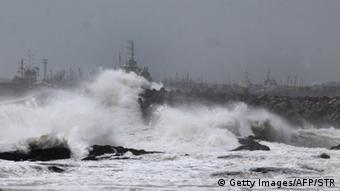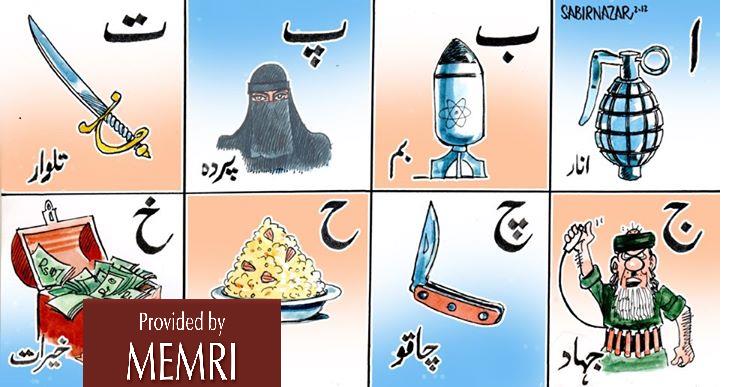By Jessica Salter
The attempted revolution in Bahrain started quietly, days after President Hosni Mubarak stepped down from power in Egypt in February 2011. It consisted of a few hundred unarmed protesters dressed in brightly coloured T-shirts and jeans, the women wearing headscarves, waving Bahraini flags, proclaiming themselves ‘people of peace’ and calling for democracy. Then one young demonstrator was shot in the back at close range by security forces loyal to the state’s authoritarian leader, King Hamad bin Isa al-Khalifa. His death changed everything. Thousands of people gathered at the Pearl roundabout – a giant white monument in the centre of the capital, Manama – to protest against his killing, adding fuel to the anti-government movement. ‘It was as if we had been underwater with no oxygen, and suddenly we had managed to get our heads above and were able to breathe for the first time,’ Maryam Alkhawaja, a 27-year-old civil rights protester, told me on the phone from Bahrain in September. ‘I honestly think that if the government hadn’t shot someone on the first day it would not have lasted.’ Nearly four years later, the protests are still going. In years to come Maryam, her sister Zainab and their father, Abdulhadi, may be looked on as a family who changed the course of history. Undeterred by the threat of arrest and torture, the Alkhawajas fight for democracy in a mainly Shia Muslim country that has been ruled by the same Sunni dynasty for more than 200 years. While Bahrain has an elected legislative assembly, the king is the supreme authority and members of his family hold the main political and military posts. It is a country where criticising the government, even on Twitter, is an arrestable offence (a friend of Maryam’s, Nabeel Rajab, has been detained in prison since October 2, charged with ‘insulting a public institution’ in a tweet). In September the United Nations voiced concerns about ‘ongoing violations’ of freedom of expression in Bahrain. Yet Maryam and her family persistently criticise the government and are frequently arrested. Abdulhadi is serving a life sentence in Jaw prison – from which have emerged harrowing reports of torture, including that of child prisoners – charged with ‘organising and managing a terrorist organisation’ (he founded a human rights organisation). Zainab was arrested on October 14 despite being nearly nine months pregnant after she ripped up a picture of the king in court – while already facing a charge of ripping up his picture. ‘We’re worried she will give birth in prison,’ Maryam said. Maryam herself had only just been released from jail, and still had a torn shoulder muscle from a beating she received at the hands of the state security forces. The Alkhawaja family is the subject of an extraordinary documentary, We Are the Giant, made by Greg Barker, an American former war correspondent turned filmmaker. He tells the stories of three uprisings of the Arab Spring – in Libya, Syria and Bahrain – through the experiences of ordinary citizens: Osama, who describes how his 21-year-old son, Muhannad, who was brought up in Virginia, went back to Libya, the country of his birth, to fight Gaddafi’s forces in Benghazi; Ghassan and Motaz, who try to remain committed to peaceful resistance even as Syria becomes an increasingly violent place in which to live; and Maryam and Zainab. Barker knew he wanted to make a film about the Arab Spring as soon as the protests began to grow. ‘I felt that we were witnessing a revolutionary moment, which comes in waves across history, and this was the Middle East’s time,’ he said. Unlike Libya and now Syria, Bahrain has not been the subject of Western government intervention. Barker said this was partly because Bahrain is a key Western ally – a US naval base is located on the north-eastern side of the island, as close to Iran as the US can get – and partly because there is a strong pro-Bahraini lobby in both Britain and the US. ‘There are a lot of powerful forces who don’t want this story to be told,’ he said. ‘That’s why we had to do it.’ Since We Are the Giant premiered at the Sundance film festival in January, the Bahraini government has joined the US-led coalition against Islamic State. Abdulhadi Alkhawaja first got into trouble with the Bahraini authorities as a student, when he was studying in London in the late 1970s. He participated in demonstrations in reaction to the arrests of pro-democracy campaigners; when some of his fellow protesters returned to Bahrain in 1980 they were arrested and tortured. Abdulhadi decided to stay abroad, in self-imposed exile. He met Khadija al-Mousawi, a former teacher who had been forced to leave Bahrain, and they married and moved to Syria, before being granted political asylum in Denmark in 1991, where they lived for 10 years. During their exile (‘we thought of ourselves as refugees,’ Maryam told me, ‘the intention was always to go home to Bahrain’), their father read books about Bahrain to his four daughters (Maryam is the third, Zainab the eldest). ‘He taught us always to ask questions and understand why we were in exile.’ The title of the documentary takes its name from an anecdote Abdulhadi would tell the girls when they were growing up, Zainab explains in the film. ‘He said the people are the giant and the government is like a small man. But why is it that the little man controls the giant and keeps him in handcuffs?’ In 1999, after the death of his father, the English-educated Hamad bin Isa al-Khalifa took power in Bahrain and oversaw reforms that included releasing political prisoners and allowing those in exile to come back to the country. So in 2001, when Maryam was 14, the family returned to Bahrain. But the wave of liberalism wasn’t to last. Abdulhadi, who had co-founded the Bahrain Centre for Human Rights (BCHR) while in Denmark, continued to campaign. (‘He always told us that doing nothing wasn’t an option,’ Maryam said.) As a result he was regularly intimidated. He was assaulted by government forces in 2002, arrested and beaten in 2004, sustained more injuries in 2005 during a protest (photographs of his back show long red marks from the beating he received) and arrested again in 2007 after a pro-democracy rally (his offences included ‘promoting change to the political system through illegitimate means’). Like her father, Maryam studied abroad, spending a year in the US on a Fulbright scholarship at Brown University. When she returned to Bahrain in mid-2010 she worked for the BCHR. In August that year there was a government crackdown on dissidents; prominent activists were arrested and allegedly tortured. ‘By September my father heard that I was next on the list. He told me to leave the country,’ she said. Maryam moved to London. In February 2011, inspired by the successful protests in Egypt and Libya, Bahrainis started calling for a day of peaceful protest; when the Bahraini authorities tried to block a popular Facebook page calling for a revolution, the ‘likes’ almost doubled from 14,000 in a few days. (In the documentary, tweets from the time pop up on screen – both from Maryam, who has 102,000 followers of her account @MARYAMAlkhawaja, and Zainab, who tweets as @angryarabiya – highlighting the importance of social media to the uprisings.) ‘As soon as I heard the calls to protest I had to come back,’ Maryam said. She returned on February 9 2011. Two days later President Mubarak stepped down in Egypt. ‘It gave us hope,’ she said. ‘Hope is the reason for all of these revolutions in the so-called Arab Spring; they didn’t cause each other, they inspired each other.’With her father imprisoned for life and her pregnant sister facing giving birth in jail, Maryam Alkhawaja explains why they keep on protesting for democracy
























